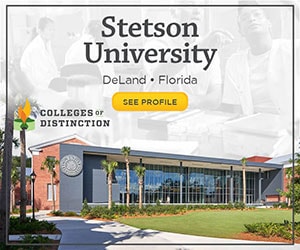Community-Based Learning: Your Chance to Grow Personally and Professionally
For many students, service work and community involvement are motivating factors in their college education. These students seek the knowledge and skills that will empower them to change their world for the better. For others, community-based learning is essential preparation for life after college. These service opportunities are key to crafting and projecting the image of a well-rounded applicant who will eventually benefit the organization he or she works for.
Service is an increasingly valuable element of a college education. A university that provides plentiful and meaningful opportunities for service—in its local community and beyond—is an institution that truly creates a rewarding college experience, touching both students and graduates.
Of course, serving those in need has its own intrinsic value, which is why so many young people are focused on tackling the challenges that face their communities and the world. But as an added bonus, the power of service is also clearly visible in the job market, as candidates who can articulate meaningful service experiences are more likely to be hired for sought-after jobs. Several factors that drive this correlation are:
- Building self-confidence: Young people who commit themselves to a cause gain self-esteem and experience personal growth. Meaningful public service provides a sense of accomplishment that empowers young people to handle the pressures and challenges of the workplace. Employers know that a job candidate with a track record of successful public service has the potential to be a valuable addition to any team.
- Learning by doing: Colleges of Distinction are defined in part by their commitment to providing a wide variety of learning experiences that bring education outside of the classroom. When schools incorporate challenging volunteer projects into coursework, they add a new level of engagement to their students’ education; these service-learning projects allow students to hone leadership and decision-making skills in an endeavor with real, impactful results.
- Working across cultures: As a result of technological advances and shifts in population, our world is constantly becoming more interconnected. This changing world demands professionals who can work across cultures. Students who engage with problems that take them out of their comfort zones—whether into an underserved community in their region or to an underprivileged community on the other side of the world—become more sophisticated and better suited for cross-cultural work at the professional level.
- A Spirit Of Community: Successful service and philanthropy programs are often rallying points for campus communities, bringing together large groups of students, faculty, and staff in support of worthy causes. These programs, which often take the form of extended fundraising events (such as the American Cancer Society’s “Relay for Life” or the American Foundation for Suicide Prevention’s “Out of the Darkness” walks), do far more than raise money; they provide the setting for many students’ fondest memories of their college years, as do programs like “Alternative Spring Break,” which engage students in service projects in communities around the country and the world.
A college with a robust tradition of service and philanthropy does more than give you experiences to add to your résumé. It gives you opportunities to join and engage with a community that you will always be able to call your own.
What to Look For
When looking for the college that’s right for you, take some time to find out about the service opportunities offered on campus. As you do, keep an eye out for the following hallmarks through which service can make a real difference in your experience:
- Long-running service programs: Look for opportunities to be part of an ongoing campus tradition or a large-scale community service event. The power of service is even greater and more rewarding when it helps you create a lifelong commitment.
- International opportunities: Programs that give you the opportunity to travel abroad to perform service are often powerful experiences. They can also add another dimension to your personal development and career preparation, enabling you to learn to work in a new cultural environment.
- Integration into coursework: Look for schools in which you’ll have the chance to put the lessons you learn in the classroom into action through service of a charitable cause. You’ll gain valuable real-world experience while serving a worthy cause, resulting in some of the most memorable days of your college career.





